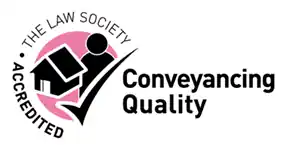
Claiming Compensation For A Spinal Injury
If you have suffered a serious back or spinal cord injury in an accident that was not
your fault, then you may be thinking about making a claim for compensation. In this
blog, written by the lawyers in our serious injury team, we provide answers to some of
the questions that we are most frequently asked about the claims process and which
we hope will encourage you to seek the compensation that you deserve.
In what circumstances can a claim be made?
A claim for a serious back or spinal cord injury can usually be made in any case where
the cause of your injury stems from your involvement in an accident for which you
were not to blame, such as a road traffic accident, an accident at work or a slip, trip or
fall, or where it is attributable to the provision of substandard NHS or private medical
treatment – commonly referred to by lawyers as clinical or medical negligence.
How will making a claim help me as I attempt to rebuild my life?
While no amount of money can undo the damage that has been caused, an award of
compensation can be useful in providing you with future financial security and in
helping you to access whatever you need in order to be able to deal with your injuries
going forward, whether that be further treatment or rehabilitation, specialist equipment
or mobility aids or even somewhere else to live where your current home is no longer
capable of meeting your needs, even allowing for any adaptions that may be made.
What types of injuries can you deal with?
Our lawyers have experience in dealing with a wide range of back and spinal cord
injuries, including those that result in:
- Chronic and persistent leg or back pain;
- Reduced mobility or loss of limb sensation;
- Bowel or bladder incontinence;
- Sexual dysfunction;
- Breathing or swallowing difficulties; or
- Full or partial paralysis, including monoplegia, hemiplegia, paraplegia,
tetraplegia or quadriplegia.
We can also help with injuries which stem from the failure to diagnose Cauda Equine
Syndrome, the most common of which is nerve damage.
How does the claims process work?
When you contact us, you will be provided with a free assessment by one of our
experienced personal injury or medical negligence lawyers. They will ask about the
circumstances of your accident and the injuries that you have sustained and will then
form a view about whether a claim for compensation may be possible and, if so, how
much it is likely to be worth.
Where you are advised that a claim can be made, and you decide that you would like
us to progress this on your behalf, we will begin to collate the evidence that you will
require in support of your position. This will inevitably include medical evidence so
that we have a clear picture of the severity of your injuries, how they have affected
your life, the treatment and ongoing care that you will require and anything else that
may be needed to improve your eventual prognosis or quality of life. We will also need
to compile evidence to demonstrate any financial damage that you have sustained,
whether that be through loss of earnings or an increase in daily living costs.
When we have everything that we need, we will present your case to your opponent
and ask them to admit liability and agree to pay compensation without the need for the
court to get involved.
Where this request is accepted, we will negotiate an acceptable settlement figure on
your behalf and ensure that as part of the deal you get access to any immediate care,
treatment or other support that you need in order to help you on the road to recovery.
Where liability for your injuries is denied, or there is a refusal to pay you the
compensation that we believe you deserve, then it may be necessary to take your
case to court but this should not be a cause for concern as we will ensure that your
case is presented in the best possible light and that you achieve the best possible
outcome given the circumstances of your case.
Completing the claims process may take a matter of months, or in very serious or
highly contested cases several years. However, to help tide you over financially while
you wait for your claim to be resolved it will usually be possible (provided liability is
admitted) to apply for an interim payment in respect of the compensation you will
eventually receive, and which can be used immediately to help meet your living costs
and to pay for any specialist care or equipment that you need.
How much compensation am I likely to receive?
The amount of compensation that you are awarded will depend on a variety of factors,
including the severity of your injuries, the extent to which you can be expected to
recover from them, whether or not there is any prospect of you being able to return to
work, your age at the time of your accident, the impact your injuries have had on your
quality of life and whether you will need ongoing occasional or round the clock care.
Minor back injuries may attract a compensation payment in the low thousands.
However, serious spinal injuries resulting in paralysis can attract payments of
hundreds of thousands and in some cases millions of pounds.
To find out more about how personal injury and medical negligence compensation is
calculated, please read our recent blog on compensation awards.
How much does it cost to bring a claim?
In most cases, you can bring a claim for personal injury compensation using a no win,
no fee arrangement which means that there will usually be no cost to you if your claim
is unsuccessful and that your costs will be covered by your opponent in the event that
your claim succeeds. In some cases, you may also have insurance in place that might
cover the cost of making a claim and if you are a member of a trade union, and your
accident occurred at work, you may also be able to look to them to help with funding.
How long do I have to bring a claim?
You normally only have three years from the date on which an injury was sustained in
which to make a compensation claim. However, there are exceptions to this rule,
including for:
- Claims made on behalf of children, where the claim must be made within three
years of them turning 18; and - Claims made for adults who lack mental capacity, for example as a result of an
associated head or brain injury or who were born with a profound disability, in
which case there is no time limit for as long as their mental incapacity
continues.
How to find out more
For further information on our compensation claims service for serious back and spinal
cord injuries, please call us on 0800 1956412 and ask to speak to Abid Hussain, Anna
Rushton or Dominic Jones in our serious injury team. To speak to someone in Polish,
please ask to talk to Agnieszka Kulas.
















